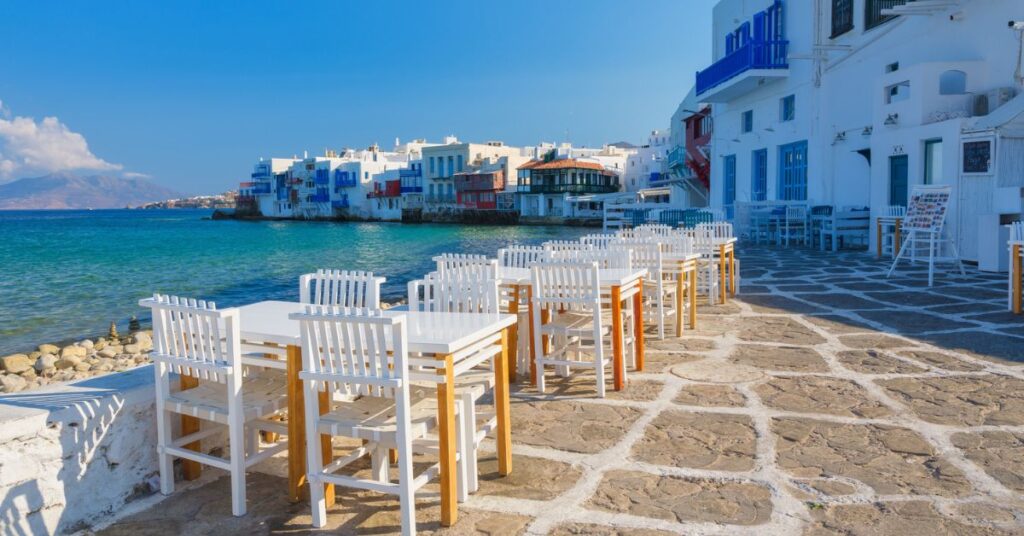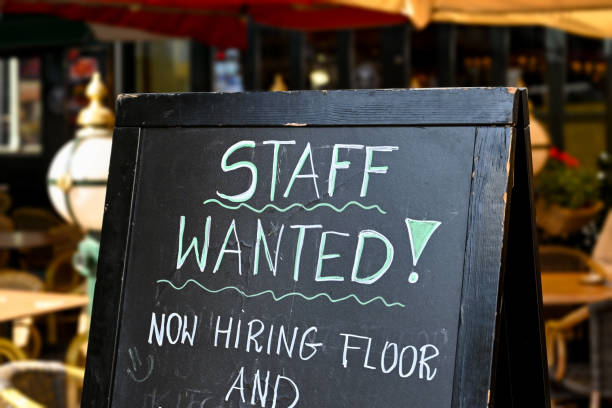
Greece’s most famous islands are brimming with tourists, yet shop owners said that they cannot find enough workers to keep their doors open.
The labor crisis is hitting at the same time the government tightens migration laws, creating a widening gap between economic needs and political choices.
Tourist hotspots struggle to fill jobs
On the island of Tinos, known for its August pilgrimage to the Megalohari church, boutique owner Matina joked with newspaper Sloboden Pečat that she would crawl there on her knees if it meant finding staff in time for next summer.
Signs reading “Staff wanted” are scattered across the streets, even in areas where wages are higher than in Athens and housing is provided.
In a nearby jewelry shop, Tamar from Georgia greets customers with basic Greek before switching to English. She relies on her boss to translate for older clients.
Despite the language barrier, the store owner is relieved to have her for the season.
Tamar is one of the few seasonal workers Greece successfully brought in under agreements with countries such as Armenia, Georgia, Moldova, India, the Philippines, and Vietnam.
Those deals promised 40,000 foreign workers, but bureaucracy, understaffed embassies, and low pay have slowed results.
Pandemic exodus leaves deep gap
The Greek Hoteliers Association estimated that tourism alone needs at least 60,000 workers. Giorgos Hosoglou, head of the Panhellenic Federation of Food and Tourism Employees, calls it an “unprecedented shortage of skilled and experienced workers.”
Many left during the COVID-19 lockdowns and never returned, citing short seasons and limited unemployment benefits.
Others moved to higher-paying seasonal jobs in Northern Europe, while long-time Albanian workers are retiring or seeking better prospects elsewhere.
The shortfall goes beyond tourism. Agriculture and construction each require an additional 50,000 to 60,000 workers.
Before the pandemic, Greece depended heavily on foreign labor in these sectors. Now, rival destinations attract migrants with faster paperwork and higher wages, pulling them away from Greek employers.
Government chooses hardline path
Despite the urgent demand, Prime Minister Kyriakos Mitsotakis’s government is doubling down on anti-immigration policies to court right-wing voters.
Former migration minister Makis Voridis froze extensions for residence permits, leaving long-term legal migrants in limbo. His successor, far-right Thanos Plevris, has made deportation his top priority while tightening asylum laws.
At a recent European Union ministers’ meeting in Copenhagen, Plevris warned that Greece cannot handle the 9,000 migrants who have arrived from Libya since January.
He unveiled legislation imposing two- to five-year prison terms on rejected asylum seekers who refuse to leave. His slogan, “Prison or return,” now circulates widely on social media.

Economic needs clash with political messaging
Business owners argued that the government’s stance directly undercuts the workforce needed to sustain Greece’s economic recovery.
Tourism, a key driver of GDP, risks losing momentum if hotels, restaurants, and shops cannot staff operations. Sectors like farming and construction face similar risks, with seasonal demands going unmet.
While some saw tighter borders as a way to maintain public order, others warned that it leaves Greece competing with countries offering migrants a clearer path to work and stability.
Without reforms to attract and retain foreign labor, industry leaders fear the shortages could become permanent.
Rising barriers may complicate travel plans
Short-term and long-term visitors to Greece and other Schengen states could face greater scrutiny as political rhetoric hardens.
With the European Travel Information and Authorization System (ETIAS) set to begin in late 2026, travelers from 59 visa-exempt countries will need pre-approval for stays up to 90 days.
While ETIAS targets security and migration control, the current Greek stance may influence how border guards interpret entry conditions, potentially leading to tighter checks.
Migrants seeking seasonal work could encounter even steeper challenges if stricter national policies blend with EU-wide pre-screening rules.
Political shift may influence EU-wide policy
Greece’s approach signals how national politics can push EU members toward more restrictive migration rules.
If Athens continues to favor deterrence over recruitment, it could embolden other states facing similar labor shortages but seeking political gain through border control.
This dynamic may feed into future Schengen visa discussions, influencing legal pathways for work and residency.
EU-wide coordination on migration could become harder if individual states prioritize short-term political wins over economic needs, especially in sectors reliant on foreign labor.

Action beyond politics
Greece’s tourism, agriculture, and construction industries urgently need tens of thousands of workers, yet the country’s restrictive immigration stance is driving away the very people who could fill these roles.
This labor shortage isn’t just an economic statistic. It affects the services you rely on as a visitor, resident, or business owner.
Without a shift toward a more practical, worker-friendly immigration policy, Greece risks undermining its own recovery and long-term growth.
The question now is whether leaders will prioritize political points or the nation’s future workforce.
